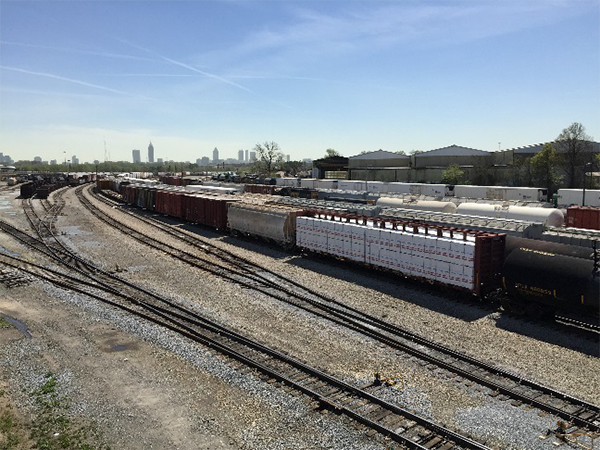United States-European Commission Urban Freight Twinning Initiative: Compendium of Project Summaries
| |||
| Regional Plans | United States |
The Atlanta Regional Comission (ARC) developed the Atlanta Regional Freight Mobility Plan, which was adopted in 2008. It has provided direction for freight planning and implementation throughout the Atlanta region. The Atlanta Regional Freight Mobility Plan Update was adopted in June 2016, and is an update of the original plan. Its primary purpose is to identify and prioritize freight infrastructure projects needed in the Atlanta region, incorporate those projects into other regional plans, analyze locations with the most freight activity, evaluate freight performance in the region, and identify other freight planning needs.

A rail freight yard in northwestern Atlanta.
Source: Atlanta Regional Commission.
MPO Policy Document
Ongoing
Atlanta Metropolitan Planning Organization’s planning area
https://atlantaregional.org/freighttransportation/
Daniel Studdard
Atlanta Regional Commission
(470) 378-1593
DStuddard@atlantaregional.org
This plan update identified major infrastructure projects needed in the Atlanta region, while also analyzing other regional freight issues. Truck parking was identified as an issue having an impact nationally as well as within the Atlanta region:
Stakeholder involvement included local, State, and Federal transportation staff, elected officials, and private industry. This was done through ARC standing committee meetings, the ARC Freight Advisory Task Force, stakeholder interviews, and an online questionnaire.
|
United States Department of Transportation - Federal Highway Administration |
||